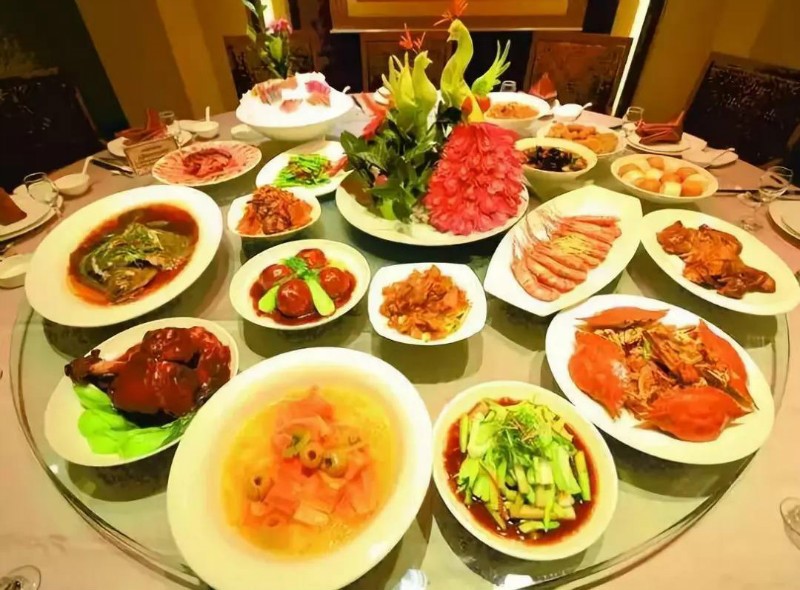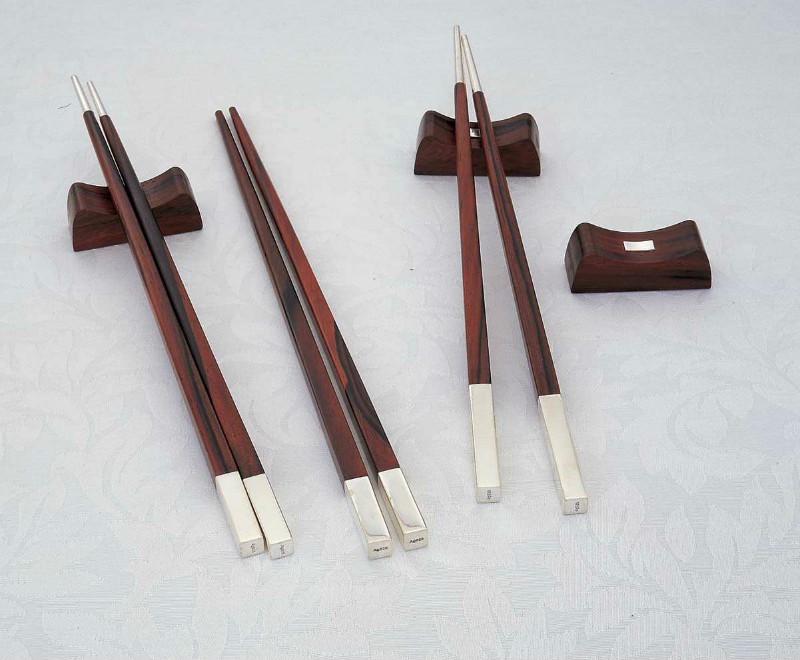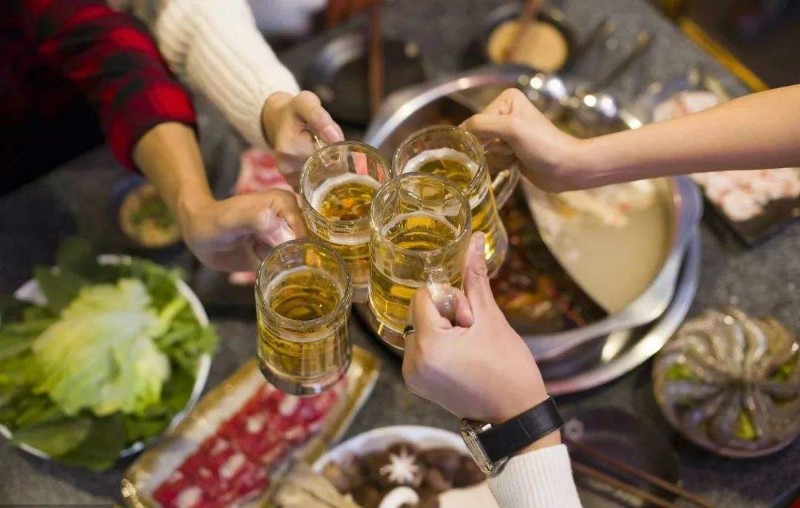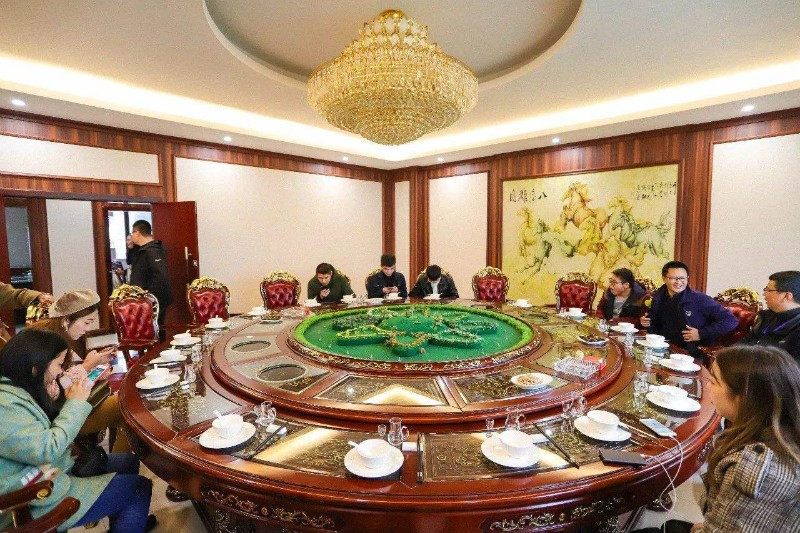Of course, the main difference on the Chinese dinner table is chopsticks instead of knife and fork, but that's only superficial.
The real difference is that in the West, you have your own plate of food, while in China the dishes are placed on the table and everyone shares.
A multitude of etiquette considerations occur also when dining in China. There are some special differences in table manners from western countries.
Communal Dishes
The food is served via large communal dishes, and in nearly every case, you will be supplied with communal chopsticks for transferring food from the main dishes to your own. You should use the communal chopsticks if they are supplied. If they are not or you are unsure, wait for someone to serve food to their own plate, and then copy what they do. On occasion, an eager Chinese host may place food into your bowl or on your plate. This is normal. It is rude to not eat what you are given. If you are offered something you absolutely can't stomach, finish everything else, and leave the rest on your plate. Leaving a little food generally indicates that you are full.

Do not Play with Chopsticks
Don't stab your chopsticks into your bowl of rice. As with any Buddhist culture, placing two chopsticks down in a bowl of rice is what happens at a funeral. By doing this, you indicate that you wish death upon those at the table.
Do not play with your chopsticks, point at objects with them, or drum them on the table - this is rude. Do not tap them on the side of your dish, either, as this is used in restaurants to indicate that the food is taking too long, and it will offend your host.When setting down your chopsticks, place them horizontally on top of your plate, or place the ends on a chopstick rest. Do not set them on the table.Hold the chopsticks in your right hand between the thumb and index finger, and when eating rice, place the small bowl in your left hand, holding it off the table.Do not stab anything with your chopsticks, unless you are cut vegetables or similar. If you are in a small, intimate setting with friends, then stabbing smaller, more difficult to grab items is okay, but never do this at a formal dinner or around those who adhere strictly to tradition.

Drinking
A toast to others is a characteristic Chinese dining. When all people are seated and all cups are filled, the host should toast others first, together with some simple prologue to let the dining start. During the dining after the senior's toast, you can toast anyone from superior to inferior at their convenience. When someone toasts you, you should immediately stop eating and drinking to accept and toast in response. If you are far from someone you want to toast, then you can use your cup or glass to rap on the table to attract attention rather than raise your voice. However, it is impolite to urge others to drink.When tapping glasses for a cheer, be sure that the edge of your drink is below that of a senior member, as you are not their equal. This will show respect.

Seating
The seat that is given to the “guest of honor” or the oldest person in the family gives the best view of the room. The “seat of honor” is usually the one facing the entrance of the room or the one in the center facing east of the room, if there is no seat facing the entrance.
The next rule that governs in the seating plan is linked with the “social ranking” of a person. This rule will be applied even if the dinner is of family get-together. That is, the person with higher rank gets a closer seat to the “guest of honor”.
As for the host, he may take the least prominent seat, usually the one nearest the kitchen or service door. It is better to be seated after the senior or the guest of honor sit down. Guests should wait for the host to invite them to get seated.

Other Tips
1. Start eating after the host gives a sign to start eating.
2. It is incumbent upon the host to urge the guests to eat and drink their fill, which means ordering more food than necessary and keeping an eye out for idle chopsticks.
3. Pick up the bowl of rice and lift the rice into your mouth with the chopsticks. Do not make any noise when chewing the food.
4. The spoon should not be used at the same time as the chopsticks.
5. Leave bones on a plate or napkin with your chopsticks
6. Concentrate on the meal and people in attendance. It is considered ill-mannered to fiddle with your phone during the dining.
7. Toothpicks should not be used during the meal but rather at the end, and always whilst covering the mouth.
8. Tipping is not customary in China.










